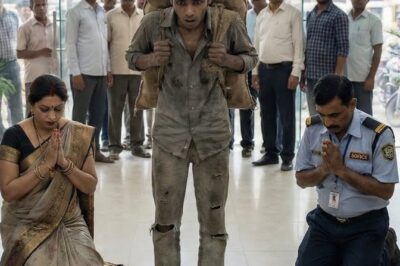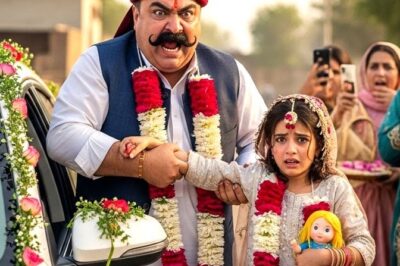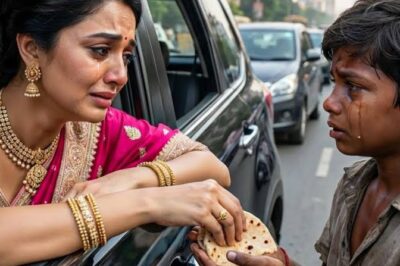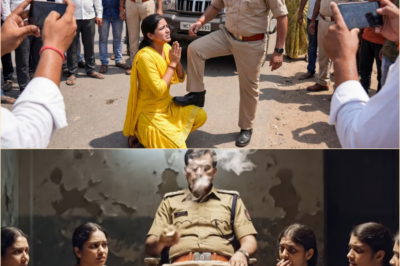Ankita Lokhande’s Defiant Stand: Defending Premanand Maharaj Amidst Social Media Outrage
The Indian social media landscape is no stranger to controversies, especially when it comes to statements made by spiritual leaders. In recent weeks, a storm has erupted online following the circulation of controversial video clips involving two prominent spiritual figures: Aniruddhacharya Maharaj and Premanand Maharaj. The uproar reached new heights as celebrities and netizens alike voiced their opinions, with some condemning the remarks and others rising to the defense of the embattled gurus. Among the latter is television actress Ankita Lokhande, whose powerful response to trolls and critics has become a focal point in the ongoing debate.
The Spark: Viral Clips and Outrage
It all began when a video of Aniruddhacharya Maharaj went viral on social media. In the clip, the spiritual leader makes a sweeping generalization about young women, stating, “Nowadays, 25-year-old girls have affairs with four or five people.” The statement, perceived as derogatory and regressive, drew widespread condemnation. Social media platforms were soon ablaze with criticism, and the backlash was swift and merciless.
Not long after, another video surfaced—this time featuring Premanand Maharaj. In his clip, he claimed, “Out of 100 girls, only two or four are pure.” Though the context of the statement was not immediately clear, the partial clip was enough to ignite further outrage across the digital landscape. The two incomplete clips, when shared and amplified, painted a picture of spiritual leaders making sweeping, offensive remarks about women’s character.
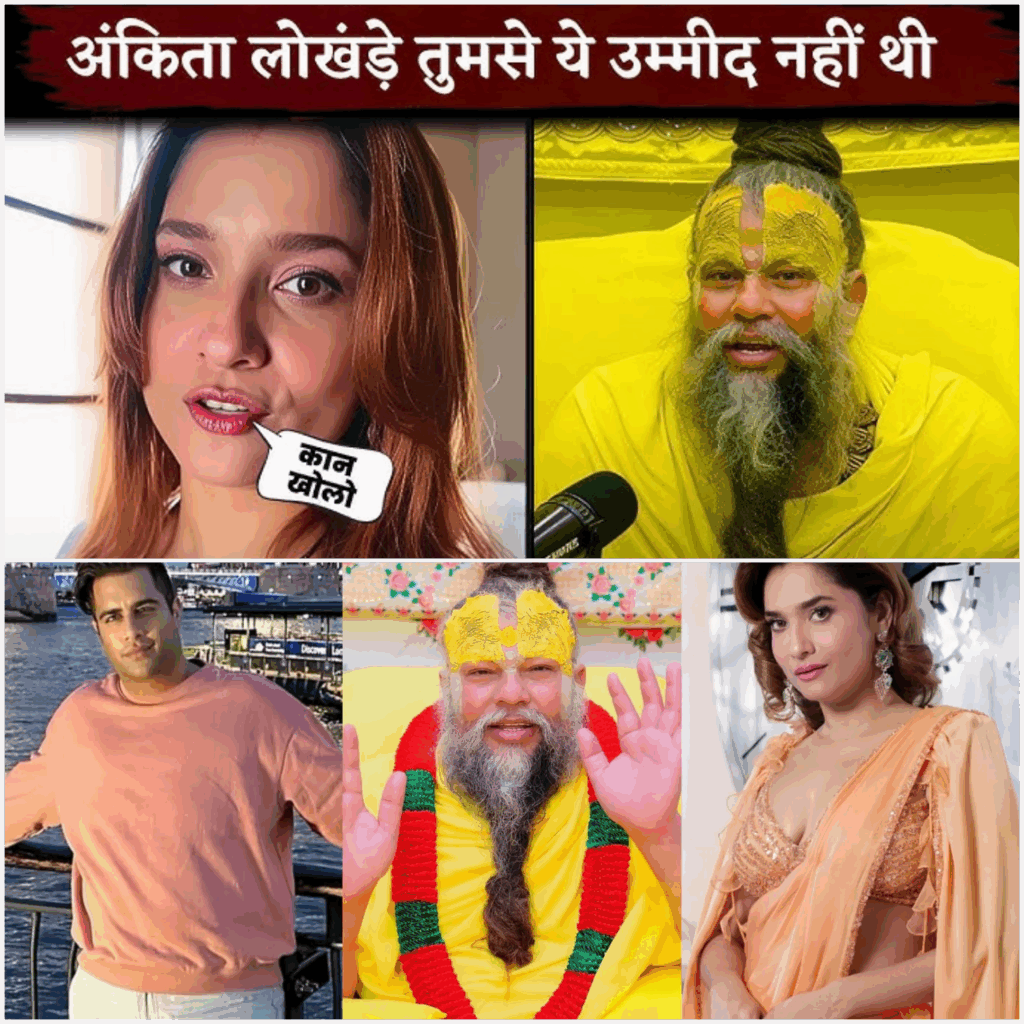
Celebrities Join the Fray
As the videos gained traction, several celebrities entered the conversation, using their platforms to denounce the statements. Among the most vocal were Khushboo Patani, sister of Bollywood actress Disha Patani, and television actress Munmun Dutta, known for her role in “Taarak Mehta Ka Ooltah Chashmah.” Both criticized Aniruddhacharya Maharaj for his remarks, with Khushboo Patani going so far as to call him “anti-national” and urging people not to support such figures.
Khushboo Patani’s response was particularly pointed. She shared a video expressing her anger, stating that if Aniruddhacharya were in front of her, she would show him the true meaning of his words. Her message resonated with many, who saw it as a necessary stand against misogyny and the policing of women’s behavior.
Munmun Dutta, too, took to social media to condemn the statements, emphasizing the need for spiritual leaders to be more responsible with their words, especially given their influence on millions of followers.
Enter Ankita Lokhande: A Voice of Dissent
Amidst the chorus of condemnation, one voice stood out in defense of Premanand Maharaj—Ankita Lokhande, a celebrated actress known for her roles in television and film, and a figure admired for her candor and courage. Ankita, who has often spoken her mind regardless of public opinion, took to Instagram to share her perspective on the controversy.
In a bold move, Ankita posted the full video of Premanand Maharaj’s viral statement, providing the complete context that had been missing from the widely circulated clip. Alongside the video, she wrote, “Absolutely correct, open your ears. He spoke for both boys and girls, and what he is saying is absolutely right. Full support to Premanand Maharaj. In these times, people like him bring back the simplicity of spirituality. He has not said anything wrong.”
Ankita’s post was a direct challenge to those who had condemned Premanand Maharaj based on incomplete information. By sharing the full video and expressing her unequivocal support, she sought to shift the narrative and encourage a more nuanced understanding of the issue.
The Power of Context: Misrepresentation and Media
Ankita Lokhande’s intervention highlights a recurring problem in the age of social media: the tendency for statements to be taken out of context, leading to misrepresentation and, often, unwarranted outrage. In both the Aniruddhacharya and Premanand Maharaj cases, short clips were shared without the broader context, fueling anger and condemnation.
Supporters of Premanand Maharaj argue that his statement, when viewed in its entirety, was not intended to single out or demean women but was a broader commentary on the challenges of maintaining purity and discipline in modern society—applicable to both genders. Critics, however, maintain that such remarks, regardless of context, perpetuate harmful stereotypes and contribute to the policing of women’s behavior.
Ankita’s decision to share the full video was an attempt to restore balance to the conversation, urging people to consider the complete picture before forming judgments.
Backlash and Support: The Divided Response
Predictably, Ankita Lokhande’s post generated a wave of reactions. While many praised her for standing up for what she believed in and for promoting a more thoughtful approach to viral controversies, others accused her of defending regressive views.
Some social media users thanked Ankita for providing the full context and supporting spiritual leaders who, in their view, are often unfairly targeted. “Thank you, Ankita, for showing the full video. People are so quick to judge without knowing the facts,” wrote one follower.
Others, however, were less forgiving. “Just because someone is a spiritual leader doesn’t mean they should be above criticism. These statements are harmful, no matter the context,” commented another user.
The debate quickly became polarized, with both sides digging in their heels. For Ankita, the backlash was nothing new. Known for her strong personality and willingness to speak out, she has faced criticism before and has always stood her ground.
The Role of Celebrities: Responsibility and Influence
The controversy raises important questions about the role of celebrities and influencers in shaping public discourse. With millions of followers, figures like Ankita Lokhande, Khushboo Patani, and Munmun Dutta wield significant influence. Their words and actions can amplify issues, sway public opinion, and even impact the reputations of those involved.
In this case, the involvement of celebrities on both sides of the debate has ensured that the controversy remains in the public eye. For some, this is a positive development, as it encourages dialogue and forces society to confront uncomfortable truths. For others, it is a reminder of the dangers of mob mentality and the importance of critical thinking.
Spirituality in the Modern Age: The Challenge of Relevance
At its core, the controversy surrounding Aniruddhacharya and Premanand Maharaj reflects the broader tensions facing spirituality in contemporary India. As society becomes more progressive and individualistic, traditional values and teachings are often called into question. Spiritual leaders, who once commanded unquestioned respect, now find themselves under the microscope, their every word scrutinized and debated.
For many, the teachings of gurus like Premanand Maharaj offer comfort and guidance in a rapidly changing world. For others, these teachings can seem out of step with modern values, particularly when it comes to issues of gender equality and personal freedom.
Ankita Lokhande’s defense of Premanand Maharaj is emblematic of this divide. To her, and to many of his followers, he represents a return to the simplicity and purity of spiritual life. To his critics, he is a symbol of the outdated attitudes that continue to hold society back.
The Importance of Dialogue
If there is a silver lining to the controversy, it is the opportunity it provides for dialogue. In a society as diverse and complex as India’s, disagreements are inevitable. What matters is how these disagreements are addressed.
Ankita Lokhande’s call for context and understanding is a reminder that social media outrage, while sometimes justified, can also be misdirected. By encouraging people to look beyond viral clips and seek out the full story, she is advocating for a more thoughtful and compassionate approach to public discourse.
At the same time, the criticisms leveled by Khushboo Patani, Munmun Dutta, and others highlight the need for spiritual leaders to be mindful of their words and the impact they have on their followers. In an age where every statement can be recorded, shared, and dissected, there is little room for carelessness.
What Lies Ahead?
As the dust begins to settle, the debate over Premanand Maharaj’s statements—and Ankita Lokhande’s defense—shows no signs of abating. For now, the controversy serves as a microcosm of the larger cultural battles being waged in India and around the world: between tradition and modernity, faith and skepticism, outrage and understanding.
For Ankita Lokhande, the episode is yet another chapter in her journey as a public figure unafraid to speak her mind. Whether one agrees with her or not, her willingness to engage with difficult issues and stand by her convictions is a testament to her character.
Conclusion: A Call for Nuance
In an era defined by quick judgments and viral outrage, Ankita Lokhande’s response to the controversy surrounding Premanand Maharaj is a call for nuance. By sharing the full video and urging her followers to seek out the complete story, she has injected a note of caution into a debate often characterized by heat rather than light.
The controversy may continue, but one thing is clear: the need for thoughtful, informed dialogue has never been greater. As India grapples with questions of faith, gender, and modernity, voices like Ankita’s—challenging, provocative, and unapologetic—will continue to shape the conversation.
.
.
.
play video:
News
आखिर क्यों झुक गए सभी बैंक कर्मचारी एक कूड़ा बिनने वाले लड़के के सामने? 😱
आखिर क्यों झुक गए सभी बैंक कर्मचारी एक कूड़ा बिनने वाले लड़के के सामने? 😱 . . . यह कहानी…
घमंड में डूबी मालकिन ने गरीब ड्राइवर को नीचा दिखाया पर सच्चाई सामने आते ही सब दंग रह गए
घमंड में डूबी मालकिन ने गरीब ड्राइवर को नीचा दिखाया पर सच्चाई सामने आते ही सब दंग रह गए ….
Soteli maa ki Badshahi ne mazloom beti par Ramzan mein kya zulam kar daala, Islamic Story
Soteli maa ki Badshahi ne mazloom beti par Ramzan mein kya zulam kar daala, Islamic Story . . . मोहल्ले…
10 साल बाद मां को रेड सिग्नल पर मिला अपना खोया हुआ बेटा | Rula Dene Wali Kahani
10 साल बाद मां को रेड सिग्नल पर मिला अपना खोया हुआ बेटा | Rula Dene Wali Kahani . ….
गरीब लड़के ने करोड़पति की बेटी की जान बचाई, फिर लड़की ने जो किया… देखकर सब रो पड़े |
गरीब लड़के ने करोड़पति की बेटी की जान बचाई, फिर लड़की ने जो किया… देखकर सब रो पड़े | ….
“दरोगा ने सोचा साधारण महिला… IPS नंदिता ने दिखाया असली दम!”
“दरोगा ने सोचा साधारण महिला… IPS नंदिता ने दिखाया असली दम!” . . . “दरोगा ने सोचा साधारण महिला… IPS…
End of content
No more pages to load

